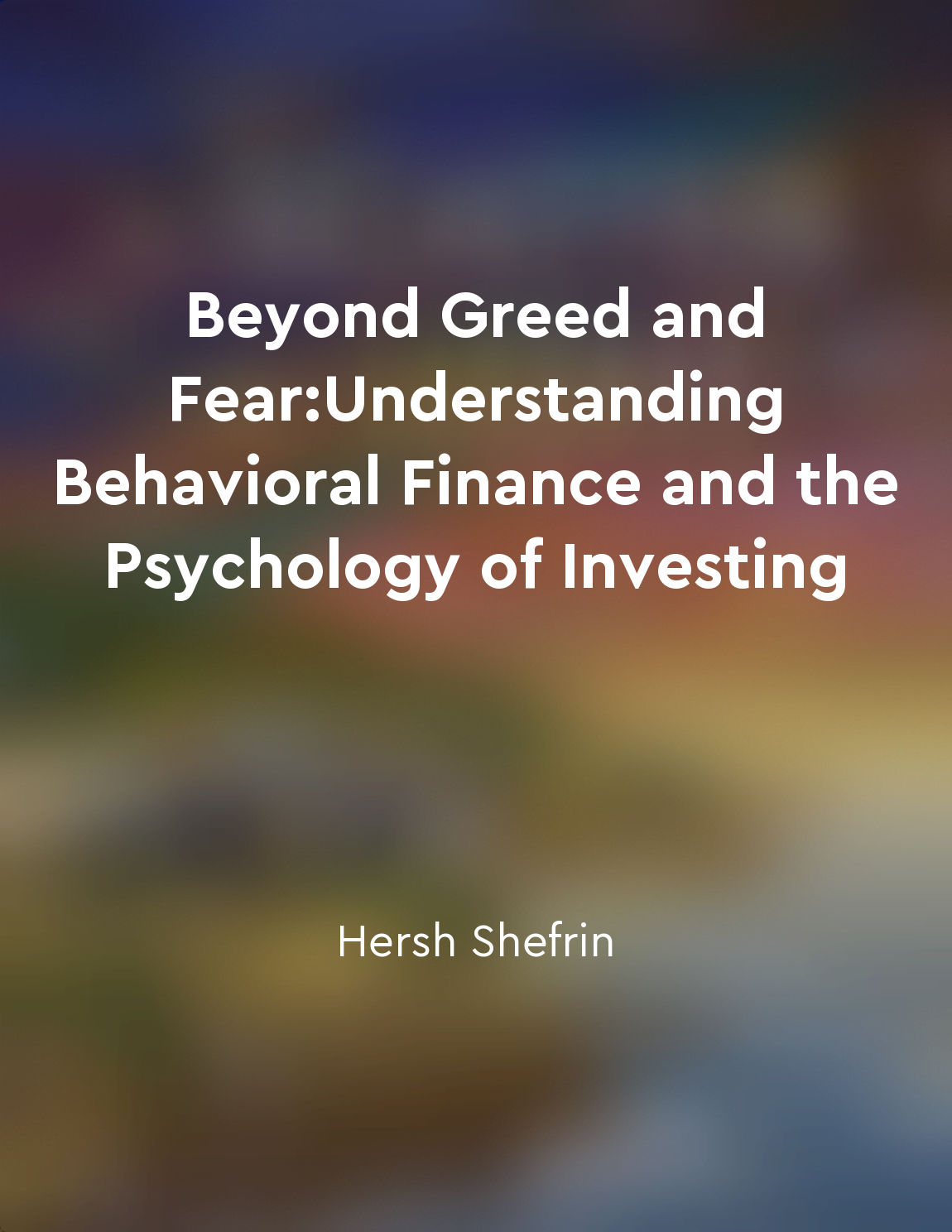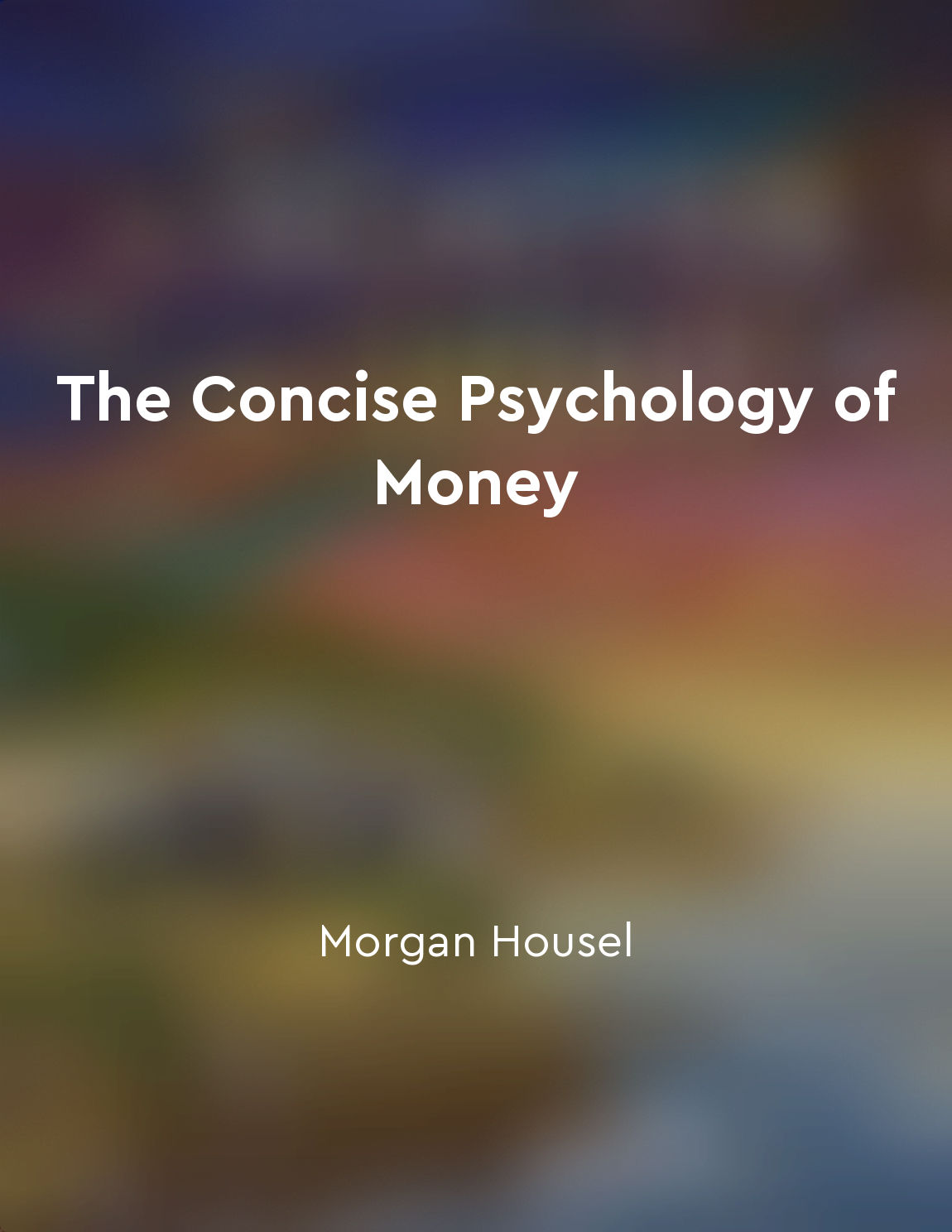Historical precedents offer valuable insights into the cyclical nature of financial euphoria from "summary" of A Short History of Financial Euphoria by John Kenneth Galbraith
Throughout history, there have been numerous instances of financial euphoria that have followed a similar pattern of boom and bust. By examining these historical precedents, we can gain valuable insights into the cyclical nature of financial markets and the recurring patterns of irrational exuberance that tend to characterize periods of economic prosperity. One such example is the Tulip Mania that swept through Holland in the 17th century. During this time, the price of tulip bulbs skyrocketed to absurd levels, driven by speculation and frenzy among investors. Eventually, the bubble burst, leading to a sudden and dramatic collapse in prices. This serves as a stark reminder of how quickly euphoria can turn to panic when market sentiment shifts. Another case study is the South Sea Bubble in 18th century England. The South Sea Company, founded to trade with South America, saw its stock price soar to unsustainable heights as investors clamored to get in on the action. When the bubble inevitably burst, countless investors were left financially ruined, highlighting the dangers of blindly following the crowd during times of exuberance. In more recent times, the dot-com bubble of the late 1990s and early 2000s provides a clear example of how euphoria can distort rational decision-making. Companies with little to no earnings were valued at astronomical levels, fueled by the belief that the internet would revolutionize business as we knew it. When the bubble finally popped, trillions of dollars in market value were wiped out, underscoring the folly of placing blind faith in speculative investments. By studying these historical episodes of financial euphoria, we can see that human nature tends to repeat itself when it comes to market behavior. The same dynamics of greed, fear, and herd mentality that drove past bubbles continue to influence investor sentiment today. It is essential to heed the lessons of history and remain vigilant against the allure of easy riches that often accompany periods of irrational exuberance in financial markets.Similar Posts

Representativeness bias results in faulty judgments
Representativeness bias is a cognitive bias that leads investors to make judgments based on how closely an event or situation r...
Understanding a company's intrinsic value is essential
To be a successful value investor, it is crucial to understand a company's intrinsic value. This intrinsic value represents the...
Confirmation bias causes investors to seek out only information that supports their beliefs
Confirmation bias is a common trap that many investors fall into. This bias causes individuals to seek out information that con...
Seeking professional advice can mitigate emotional decisionmaking
When faced with financial decisions, our emotions often take over, clouding our judgment and leading us to make choices that ma...
Building wealth is a journey, not a sprint
Building wealth is a journey that requires patience, discipline, and a long-term perspective. It is not something that can be a...

Our financial goals should be aligned with our values and priorities
Our values and priorities shape the decisions we make in every aspect of our lives, including our finances. When it comes to se...
Economic fundamentals were overlooked
The most striking and significant oversight of the period before the Great Crash of 1929 was the failure to adequately consider...
The psychology of crowds plays a significant role in driving market bubbles
The psychology of crowds is a subject of profound importance in the financial world. It is through the collective behavior and ...
Understanding market complexity is crucial for mitigating crash risks
To navigate the treacherous waters of financial markets, one must grasp the intricacies and nuances that underlie their movemen...

Psychology influences investment choices
Investors' choices are not always driven by rational analysis or careful consideration of data. In fact, human psychology plays...
